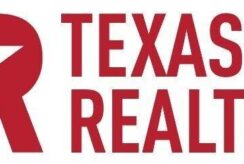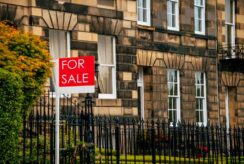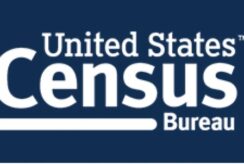Michael Valdes, Executive Vice President of International Expansion for eXp Global.

Remember when you made your housing decisions based on proximity to work or a social center? When you wanted to be in an urban environment for the vibrancy of the community and were willing to sacrifice space in order to achieve that? Well, the Covid-19 pandemic has become the great equalizer. With work from home being a more commonplace commerce solution and restaurants closing because of diminished capacity due to social distancing rules, space has become a greater commodity than ever before. As a result, the sphere of where consumers want to live has increased dramatically and offers a glimpse into potential futures for both the commercial and residential real estate markets.
Clues From China
As we start to study clues as to what the housing environment will look like after the coronavirus, I think we need to look back to mainland China — where it all began — because they are about three months further ahead in the cycle. Recently, I chaired an AREAA Global Corporate Advisory Board meeting where one of the board members, Gene Shi, president of Ke.com — one of the largest real estate portals in China, with 200,000 agents and 21,000 brokerages — shared his views and explained that real estate market in China has grown due to pent-up demand.
This is an important indicator of the behavioral buying patterns of the consumer. Shi explained to the meeting attendees that while tier-one cities showed positive recovery in the real estate sector, tier-two and tier-three cities recovered at a slower pace. The momentum of tier-one cities will lead the recovery for the country overall.
While you may not be investing in Chinese real estate, this should be taken as a global leading indicator of how other markets around the globe may fare.
Europe And SARS
PROMOTEDCivic Nation BRANDVOICE | Paid ProgramStudents Get Creative For National Voter Registration DayUNICEF USA BRANDVOICE | Paid ProgramCOVID-19 Pandemic Proves Family-Friendly Policies Are A MustGrads of Life BRANDVOICE | Paid Program#WhatsWorking: How To Build A More Just And Equitable Economy, The Ideas Are Flowing
As much as Asia gives us great hope, moving west to Europe allows us to see how the pandemic is affecting real estate in those countries. Spain, which suffered a near collapse of its economy in 2008, rebuilt its economy with tax-advantaged and residency programs. The real estate in Spain attracted many other foreign investors, not only from Europe, but from other countries where economic and political challenges became a motivator for relocation. Case in point is the increased immigration to Madrid from Venezuela that began with heavy investment in residential neighborhoods in 2008. The country is now one of the hardest hit with Covid-19 cases during this pandemic. It saw just a 6% increase last quarter of new-build sales according to Reuters.
SARS, the prior coronavirus outbreak, offers many clues as to how the behavioral patterns of consumers will begin to manifest. Many people felt that their living environments were too small when the confines of those four walls had to serve as a home, office and school — there simply wasn’t enough space to support all of these uses, so getting a bigger space and movable walls was a better options as these are easy to find online, click here to learn more. As a result, consumers considered and acted on a desire for more space, sometimes leaving the confines of the city. We are seeing this phenomenon take place again, based on a recent New York Times article showing the New York City market down 54% compared to the same period last year, the largest decline in 30 years. According to the same article, there is an uptick in search traffic for apartments that come with outdoor living spaces and home offices which could even have Glazed Partitioning for organization. Even those who do opt to stay within the city are looking for more space.
Commercial Real Estate
The interesting dynamic will be how the commercial real estate side of the equation affects residential businesses. The last several months have shown that the majority of employees could indeed work from home. Those who are returning to the office will have social distancing rules to follow, not to mention the psychological dilemma of wanting to return to a location that could possibly be a breeding ground for the virus. Before Covid-19, if you wanted a short commute time to the office, that would weigh heavily on where you would want to live. However, if that major factor were taken away and remote work were more of the norm, your habitation choices would be vaster, and space may take precedence over commute time.
Retail is another component that will ultimately impact the residential real estate world after Covid-19. Those wanting to live near a vibrant metropolis should bear in mind that many retail shops may not recover from the virus. A recent USA Today article stated that Amazon has risen 26% in revenue since the beginning of the pandemic. As a society, we are being conditioned more now than ever to have delivery within a few days, and sometimes hours. Restaurants typically operate on a very small margin, with three to four weeks of cash reserves, and often expect to hit profit when they exceed 80% occupancy; with many social distancing rules recommending 50% occupancy, that math simply does not add up to pre-Covid-19 profitability.
With the more typical reasons for choosing a place to call home challenged, a desire for space may move to the top of the list affecting decision making and potentially showing preference for migration to the suburbs.
Based on the current clues, my prediction is major cities globally will have price adjustments. Savvy investors will see it as an opportunity to purchase and hold properties, much like they did during the financial crisis. There may be a resurgence of the societal need to be in a city once a vaccine is found, but until that time, our new norm is “six feet apart” and “a mask must be worn at all times.” One thing is for sure: The adage of “hindsight is 2020” may have been speaking about the calendar year we are all living.
https://www.forbes.com/sites/forbesrealestatecouncil/2020/08/05/clues-to-the-post-pandemic-real-estate-market/#451afb961161




